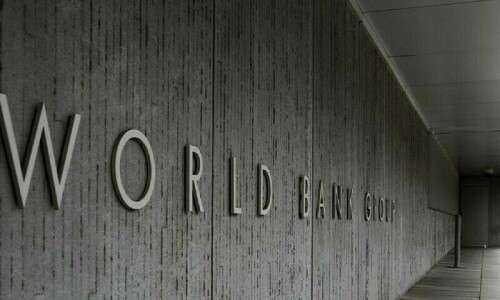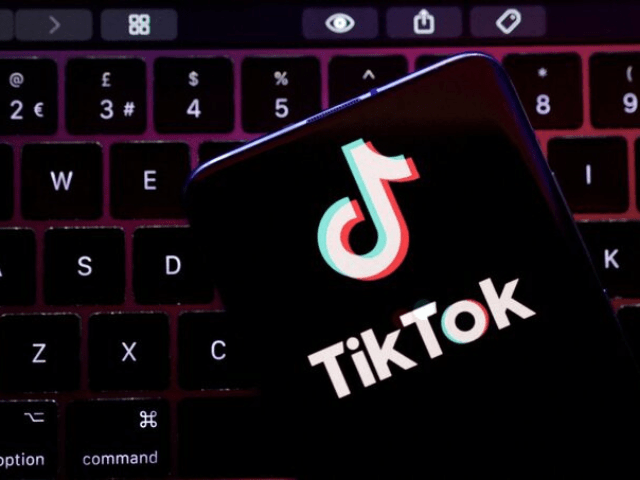Introduction
In a significant development aimed at bolstering Pakistan’s digital infrastructure, the National Database and Registration Authority (Nadra) recently hosted a high-ranking World Bank delegation to discuss the ongoing Digital Economy Enhancement Project (DEEP). This ambitious initiative is critical for the country’s digital transformation, particularly in enhancing digital identity systems and improving access to digital government services. The delegation, led by Martin Raiser, Vice President for the South Asia Region, and Najy Benhassine, Country Director for Pakistan, was briefed on the progress made under this project.
H1: The Digital Economy Enhancement Project (DEEP)
The Digital Economy Enhancement Project (DEEP) is one of Pakistan’s most pivotal initiatives for expanding and modernizing its digital landscape. With the aim of facilitating greater financial inclusion and improving access to government services, DEEP focuses on strengthening the country’s digital infrastructure, particularly in the areas of digital ID systems and public services.
H2: Key Objectives of DEEP
The primary objective of DEEP is to bolster the government’s capacity for delivering public services digitally. By enhancing the country’s digital systems, DEEP supports the creation of a more inclusive and efficient public service framework. This initiative aligns with the broader goals set forth by the Digital Pakistan Policy, which calls for the establishment of an integrated government-wide enterprise architecture and improved service delivery.
The project is designed to achieve multiple goals, including:
- Financial Inclusion: Ensuring that all citizens have access to banking services and financial products.
- Digital ID Systems: Streamlining the process of issuing secure and verifiable digital identities to citizens.
- Improved Access to Government Services: Simplifying the way citizens interact with government agencies and access services.
H3: Progress in Digital Identity Systems
One of the most significant achievements of DEEP is the progress made in digitizing the country’s identity management systems. Nadra, as the agency responsible for registering citizens and issuing national ID cards, has made considerable advancements in digitizing these services, making it easier for citizens to obtain secure, verifiable identification.
As of now, Pakistan has significantly enhanced its capacity to issue digital IDs to citizens. These digital IDs play a key role in ensuring citizens can access various government services and engage in financial transactions securely. The DEEP initiative has been instrumental in ensuring the growth of this sector, with digital authentication becoming a cornerstone of Pakistan’s digital economy.
H2: World Bank’s Role in Supporting DEEP
The World Bank has been a key partner in driving DEEP forward. As an international financial institution, the World Bank has provided the necessary funding and technical expertise to help Pakistan build the digital infrastructure required for this project. The bank’s support is not limited to financial assistance but extends to policy recommendations and knowledge sharing, which have been crucial for Pakistan’s progress.
H3: Financial and Technical Support
The World Bank’s financial backing allows Nadra and the government of Pakistan to continue investing in the digital transformation of public services. In addition to this, the World Bank has provided technical expertise that has helped streamline the digitalization of services and improve the overall efficiency of government operations.
The World Bank delegation emphasized that DEEP has the potential to revolutionize the public service landscape in Pakistan by ensuring that citizens can access services anytime, anywhere, through digital platforms. This approach will not only improve service delivery but also foster transparency, reduce corruption, and encourage economic growth.
H2: Key Features of DEEP
DEEP is designed to develop and implement a variety of digital services and infrastructure that will support Pakistan’s digital transformation. Below are some of the key features of the project:
H3: Digital Infrastructure for Public Services
DEEP focuses on creating a robust digital infrastructure to support various public services, such as health, education, taxation, and social protection. This infrastructure includes the development of platforms for digital data exchange, electronic authentication systems, and digital payment systems.
By creating these systems, the project aims to provide citizens with easier access to essential services. For example, citizens can now receive healthcare services, education, and social benefits through digital platforms, reducing the need for manual processes and long queues.
H3: Responsible Data Exchange and Digital Authentication
A key component of DEEP is the establishment of secure and responsible data exchange systems. This allows government departments to exchange data in a secure and transparent manner, reducing the risk of fraud and improving the efficiency of public service delivery.
Digital authentication systems also play a crucial role in verifying the identity of citizens. By leveraging digital ID systems, Pakistan can ensure that only the right individuals can access services and make transactions, thereby enhancing security and preventing identity theft.
H2: Impact of DEEP on Pakistan’s Digital Economy
The DEEP initiative is expected to have a far-reaching impact on Pakistan’s digital economy. By digitizing government services, the country can create new economic opportunities, streamline financial services, and increase productivity across various sectors. As a result, Pakistan will be better positioned to compete in the global digital economy.
H3: Financial Inclusion and Economic Opportunities
One of the most promising aspects of DEEP is its potential to drive financial inclusion. By providing digital IDs to citizens, Pakistan can ensure that even the most remote populations have access to banking services, loans, and financial products. This is particularly important for marginalized communities that have historically been excluded from formal financial systems.
Furthermore, DEEP will help businesses and entrepreneurs access new economic opportunities through digital platforms. By providing secure, efficient digital services, Pakistan will create an environment that encourages entrepreneurship and attracts investment.
H2: Future of DEEP: Expansion and Long-Term Goals
As the DEEP initiative progresses, there are plans for further expansion and enhancement of digital services. The next phase will focus on the integration of more government systems, the expansion of digital IDs, and the development of new services to cater to the growing needs of the population.
H3: Expanding Digital Services
Moving forward, the Pakistani government plans to integrate more public services into digital platforms, enabling citizens to access a broader range of services. These services will include digital taxation systems, digital healthcare solutions, and online education platforms, all of which will contribute to greater societal and economic development.
FAQs
1. What is the Digital Economy Enhancement Project (DEEP)?
The Digital Economy Enhancement Project (DEEP) is a World Bank-assisted initiative aimed at strengthening Pakistan’s digital infrastructure, including the development of digital ID systems and the provision of digital public services to enhance financial inclusion and accessibility.
2. How does DEEP promote financial inclusion?
DEEP promotes financial inclusion by providing citizens with secure digital IDs, which enable them to access banking services and financial products that were previously unavailable to many, especially in rural areas.
3. What role does the World Bank play in DEEP?
The World Bank provides financial and technical support to Pakistan for the implementation of DEEP. The bank helps fund the project, offers policy advice, and shares expertise to ensure its successful execution.
4. How does DEEP improve access to government services?
DEEP improves access to government services by digitizing public services, allowing citizens to access them through online platforms. This eliminates the need for in-person visits and improves efficiency.
5. What is the long-term goal of DEEP?
The long-term goal of DEEP is to create a fully integrated, digital public service framework in Pakistan. This will facilitate the delivery of a wide range of government services digitally, improving accessibility, reducing corruption, and stimulating economic growth.



